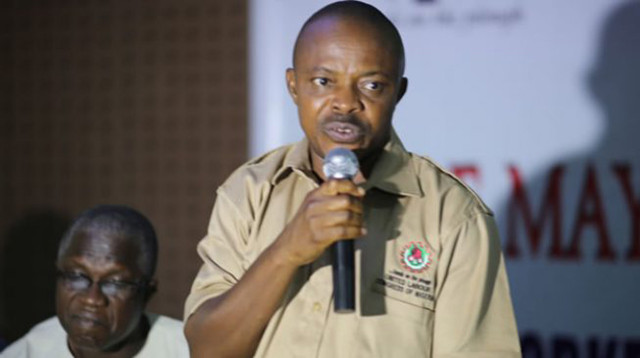The Nigeria Labour Congress (NLC) has expressed its worries about the nation's inadequate performance in terms of workers' rights, as it has once again been listed among the 10 worst countries worldwide for labour rights violations.
The NLC referred to this ranking as a national disgrace and urged employers to take the initiative to change this situation.
During the 68th Annual General Meeting of the Nigeria Employers’ Consultative Association in Lagos on Wednesday, NLC President Joe Ajaero, represented by Deputy President Adewale Adeyanju, highlighted that the latest 2025 ITUC Global Rights Index identifies Nigeria as one of the top offenders of workers' rights globally.
He stated, “This is a blemish on our conscience and a legacy none of us should accept. Many of these violations happen within the organizations represented here.”
Ajaero called on NECA to be a role model by promoting compliance with labour regulations and honoring collective bargaining rights.
He stressed the importance of collaboration between employers and organized labor to implement resolutions made during the recent 113th International Labour Conference in Geneva.
Ajaero asserted that merely making declarations is insufficient; actual actions must be taken to transform these commitments into realities that safeguard workers from the negative impacts of unregulated technology while also harnessing its advantages.
He praised NECA’s Director-General, Adewale-Smatt Oyerinde, for his readiness to engage in dialogue, emphasizing that collaboration is vital for achieving industrial harmony.
Ajaero urged NECA to partner with the NLC in adapting new International Labour Organisation conventions, such as those related to Decent Work in the Platform Economy and the Biohazards Convention to enhance workplace safety and health standards.
“Let us take this opportunity to strengthen occupational safety and health governance in our nation,” he pleaded.
He also reiterated the NLC’s request for the creation of a Standing Committee between the NLC and NECA, highlighting that such a mechanism is crucial for ongoing dialogue, dispute prevention, and conflict resolution.
“This mechanism is essential; it is the most certain path to lasting industrial peace,” he stated.
Ajaero condemned current attempts by certain state governors and lawmakers to exclude labour issues from the Exclusive Legislative List, cautioning that such actions could disrupt industrial relations across the nation.
He warned, “These misguided efforts indicate a perilous misunderstanding of the turmoil this would create. In times like these, our unity is our safeguard.”
He further voiced concerns regarding wider societal challenges affecting the labour climate, such as oppression, diminishing civic space, and economic marginalization.
“A thriving civic space is not a luxury—but the vital foundation upon which both businesses and workers can thrive,” he articulated. “We must strive to reclaim Nigeria’s shrinking civic space, which is under threat from insecurity, oppression, and economic exclusion.”
He concluded by reminding employers of the critical role workers play in the sustainability of businesses, underlining the necessity of fairness and justice in workplace dynamics.
“Profit without people is an empty pursuit; progress without justice is a fleeting illusion,” Ajaero emphasized. “That worker you deem unnecessary is also a consumer who sustains your business.”




















